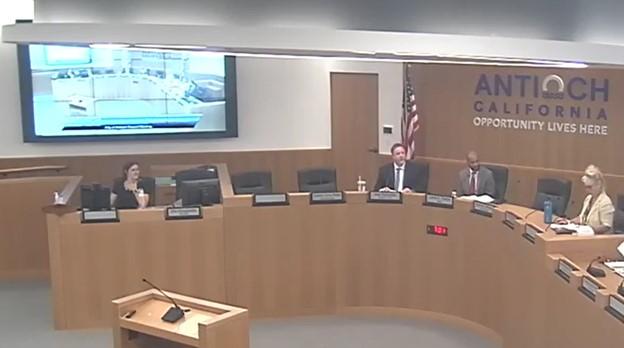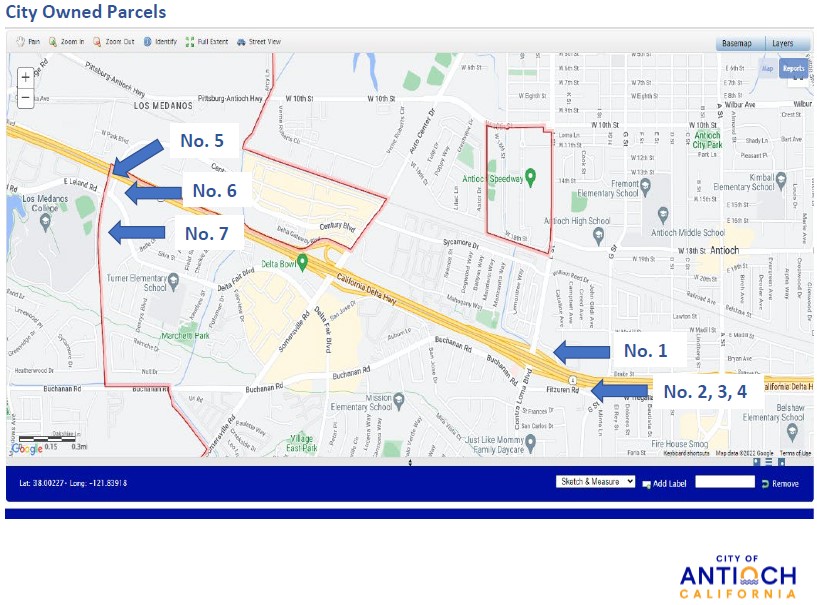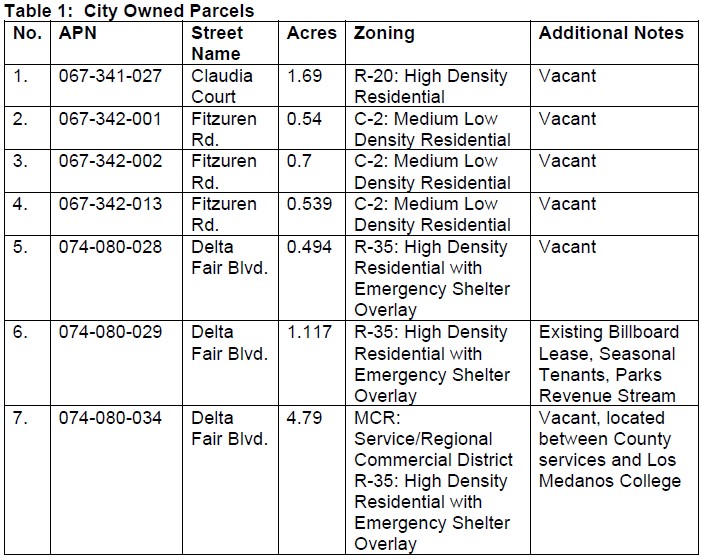With two councilwomen absent $2 million in federal funds approved for additional homeless housing program

Councilwomen Tamisha Torres-Walker and Monica Wilson were absent during the August 9, 2022, meeting. Video screenshot.
Instead of $6 million and no General Fund money; Torres-Walker, Wilson won’t say why they didn’t attend
By Allen D. Payton
During their August 9, 2022, Antioch City Council meeting, the three council members in attendance approved spending $4 million in state and federal funds on a transitional housing program in addition to the one previously approved at the Executive Inn on E. 18th Street. The original proposal was to spend $12 million for the program at the motel previously approved by Mayor Lamar Thorpe and Districts 1 and 4 Councilwomen Tamisha Torres-Walker and Monica Wilson, who were absent. (See related article)
Both councilwomen were asked the next day why they missed the meeting but neither responded.
The plan included purchasing the motel, and according to the staff report, the council considered committing $6 million in city funds, yet to be budgeted, as matching funds for an application for funds from Round 3 of the California Department of Housing & Community Development Homekey Program.
On May 10, 2022, the City Council authorized staff to pursue a Homekey application for interim housing associated with 515 East 18th Street, the location of the Executive Inn. But because the City was unable to negotiate acceptable terms for a purchase, Council support was requested for a change in approach to the City’s pursuit of State funds.
The city will instead lease the motel and has moved forward on terms with the owner.

City Owned Parcels map. Source: City of Antioch
The staff report explained the new approach which included identifying “available city-owned parcels for interim and/or permanent supportive housing opportunities for Antioch’s unsheltered residents.” It “involves the City’s solicitation of a developer partner who, once selected, will jointly apply to the State of California for funding to accomplish interim and/or permanent supportive housing in alignment and coordination with Contra Costa County’s homelessness response system. It is noted that a key distinction of interim housing is a 15-year covenant versus a 55-year covenant associated with permanent supportive housing. In either or both arrangements, participation in the Contra Costa County Continuum of Care (CoC) and Coordinated Entry System are required.” Homeless Transitional Housing program ACC080922
The new approach “intends to inspire creativity in the development community,” Assistant City Manager Rosana Bayon Moore stated.”
“This is an incredible opportunity…it’s taken us awhile to get to this point,” said local homeless advocate Andrew Becker. “But Homekey is a grant opportunity that develops housing. We rely on developers to come in and provide opportunities for our community and we’ve seen its non-existence out here in East County.”
However, a 394-unit, low- to moderate-income housing apartment project was approved by the city council in 2019 and built by a developer off East 18th Street in Antioch. (See related article)
“The state has given us an opportunity to capitalize off their dollars,” he continued. “This is a different structure…and what we can create, here can be lasting beyond what the Executive Inn is or can be in the future. These are lasting covenants for housing.”
Three other residents spoke in favor of the additional program.

City Owned Parcels Table. Source: City of Antioch
Council Discussion and Decision
During the council discussion on the item, District 3 Councilwoman Lori Ogorchock asked, “can we use ARPA funds on Homekey projects?”
“We would have the ability to use ARPA funds in connection with this work, as long as the timeframe is within the eligibility period,” Bayon Moore responded.
“I’m hugely for this. I see all the properties listed. I’d like to add L Street to that list,” Ogorchock continued. “I think Homekey grant can help us build homes for vets and seniors, along with the homeless, and it can help those most vulnerable not to become homeless.”
“There is more money, and I gave that report at the last meeting, from the governor and the funds that were now available,” she stated. “So, I hope we go after more of those funds.”
Mayor Pro Tem Mike Barbanica then asked Bayon Moore, “On the $6 million, is that a one-time all in or is there going be more in the future?”
“The intention would be to identify a ceiling, a financial commitment that we would incorporate into the solicitation, so that when we signal to the development community that the city is supportive of the effort, that those dollars are available to support the project,” the assistant city manager responded. “Now depending upon the project…six million is the cap.”
“My stance on this is we’re spending a lot of money. This council is going through a lot of money,” Barbanica stated. “We’re opening new departments, where we just spent $2.5 million on the Executive Inn, we have a commitment to Motel 6 which is per use, and I understand it’s a more cost effective way to go. But we’re not funding things like the Emergency Operations Center. We’re not funding things like the pool at the water park which is a safety issue. We’re not doing that, but we can spend $2.5 million on the Executive Inn and we can commit to another $6 million but we don’t have an Emergency Operations Center that’s up to date. I do not support this.”
Ogorchock then said, “I know this council wasn’t here when Tabora Gardens was built. But we did the same thing with $1 million…that we had to pledge…and we did commit those funds.”
“And I understand what you’re saying, and I agree 110% with you,” she said to Barbanica. “And I believe those items that you brought up were on the ARPA funds to possibly be spent on those. But again, if I’m looking at ARPA funds and we can use ARPA funds with Homekey then I think this is a doable project.”
“The state is coming up with quite a bit more money…there’s a lot of money that’s coming forth,” Ogorchock continued. “So
“There’s further nuance, and we may not end up spending $6 million because a developer will say ‘I will eat up those costs’,” Thorpe said.
“Would there be possibility to lower this dollar amount and not commit to the six million?” Barbanica asked. “Andrew had mentioned two million to commit out of ARPA funds.”
“I don’t think today, we’re setting parameters for an RFQ,” Thorpe responded. “If a developer responds and says, ‘I can meet all of that,’ we’ll have another one of these and we’ll decide then. I think we’re saying we’re willing to commit up to $6 million.”
Bayon Moore then explained “one small dimension of that. The reason for the ceiling is for us to signal to the world of developers is the city is committed to bringing this online…not to exceed $6 million. If something comes below that, that’s fantastic.”
“What we did internally is work to establish a figure that we could defend,” she continued. “We looked at some…financial models and we came to the conclusion that $6 million was a safe figure to pledge. The market will ultimately speak to us whether or not that value is one that produces a partnership.”
“We just spent $2.5 million…and now we’re looking at committing to six,” Barbanica stated. “I cannot support a $6 million commitment even if it doesn’t come in at that.”
“If we are to lower the amount to maybe $2 million?” Ogorchock asked Barbanica. “It still leaves the ARPA funds on the table. I agree with you. I will fight for the EOC and the pool to get those items done because they’re safety issues.”
“If we were to at least reduce it to two million to start there would that be something that’s doable?” Ogorchock further asked.
“Specifically pulling it from ARPA funds and not the city’s general budget?” Barbanica asked in response.
“Yes,” the councilwoman responded.
“Yes,” he responded.
The council then took up all three matters associated with the agenda item, including the solicitation for the city-owned parcels, recognizing that the city land could be the location or privately owned, the pledge of the city’s financial commitment set at a ceiling of $2 million from ARPA funds and the council’s support of pursuing Homekey.
Ogorchock tried to get the city owned lots on L Street near the police department added to the list of parcels.
“That’s going to be Veterans Park,” Thorpe said.
“Not that I’m aware of,” Ogorchock responded.
“They came in and spoke to us and we gave direction,” Thorpe stated.
Ogorchock agreed to not including the L Street parcels.
Following one last effort by the city’s homeless consultant, Focus Strategies, to get the council to commit to $6 million, a motion was made by Ogorchock, seconded by Barbanica to approve the proposal with a $2 million cap and it passed on a 3-0 vote after Thorpe said, “No. Just kidding. Yes.”
“The funds can either be used for interim and permanent supportive housing,” Bayon Moore later explained. “The application will be jointly done by the city and a developer,”
The hope is to leverage the local funds and/or the value of the city-owned properties to obtain the state grant funds.
“They’re not necessarily dollar for dollar match,” she added.
the attachments to this post:

Homeless Transitional Housing program ACC080922

City Owned Parcels map ACC080922

City Owned Parcels Table ACC080922





















